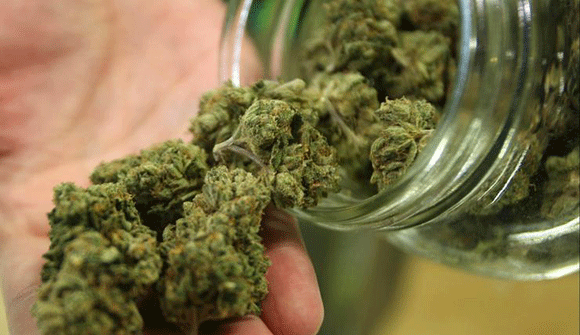
Nixon Aide Reportedly Admitted Drug War Was Meant To Target Black People … pulls back the curtain on the true motivation of the United States’ war on drugs. –Huffington Post
The Huffington Post article, excerpted above, blames the Nixon administration for the “war on drugs” and is based on a cover story in Harper’s magazine by Dan Baum.
Baum’s long article eventually makes the case for federal activism when it comes to reforming drug criminalization.
But both the HuffPo article and Baum’s extended analysis in Harper’s seem to make the distinction between a “good” kind of federal government and a “bad” one.
The Nixon, Republican kind is “bad.”
In fact, whenever the US federal government is involved, the situation tends to disintegrate.
Every problem looks like a nail to the Feds. And every solution involves a hammer sooner or later.
The US federal government is repressive and authoritarian no matter who runs it.
In this particular case, the war on drugs predates Nixon (which Baum does point out in a brief aside). It was initially propounded under Roosevelt – something both articles neglect to mention.
The article does go on at length about former aide John Ehrlichman, who told Baum that the war on drugs was actually a political scheme to disrupt Nixon’s opponents: black people and the “antiwar left.”
Baum comes to this conclusion: “In other words, the intense racial targeting that’s become synonymous with the drug war wasn’t an unintended side effect — it was the whole point.”
Now there is no doubt Nixon and his administration were corrupt, brutal and anti-black in a number of ways, as is the US intelligence community and US civil policing.
But let’s dig deeper.
The modern war on drugs actually started in the 1930s and was supposedly justified by “degenerate” Mexican drug use.
The real reason to criminalize marijuana was twofold: DuPont had just invented what would soon be known as “plastics” and hemp in various forms was the prime competitor.
The second reason was that hemp made a tough, durable paper that was economically superior to paper produced from trees.
William Randolph Hearst owned vast forests that he wanted to monetize by producing paper for his newspapers. Banning hemp provided Hearst with the opportunity to substitute one paper for the other.
The twofold combination was irresistible. Hearst blasted marijuana in his newspapers; DuPont used its considerable corporate influence to agitate for criminalization.
As a result, the federal government of the day under FDR criminalized cannabis. And after marijuana was effectively criminalized, other “drugs” were gradually accorded the same treatment.
Today governments are moving in the other direction. As they gradually cave into the pressure to legalize, the new question is what their level of involvement will be.
Baum states clearly in his article that he doesn’t trust the marketplace to deliver a rational and competitive drug industry. He wants the US federal government to organize it.
Here:
A government monopoly would be the least expensive and most flexible way to legalize drugs. It would generate the most revenue and — more important — it would protect public health. Until Congress reschedules marijuana, heroin, and cocaine, and until we get over the idea that government can do nothing right, we’re stuck with second best: state-size experiments that ignore the federal ban on marijuana and license private industries. Colorado is the furthest along that path, and its experience is instructive.
We’ll grant that Baum’s argument is likely a realistic one, given the mess of current legal parameters in the US. But we’re just not comfortable with this sort of argument generally. It presumes that the federal government operates as efficiently as a private business.
In fact, in the early 21st century, what we are seeing in the US is a degeneration of the federal government scheme. Nothing that the US administers on a federal level seems untouched by bias, opportunism and widening corruption.
One may wish to make the argument that getting drugs legalized at the federal level is the most efficient action to take. But any sort of cheer-leading for federal government involvement seems woefully misguided to us. Whether it is the IRS, the Bureau of Land Management, the Department of Education, we can see that federal government involvement for the most part is counterproductive and ultimately anti-freedom.
Involving the US government in rationalizing and redirecting the US policies toward drugs is unfortunately a necessity in terms of getting cannabis moved away from its criminal past. But after that, one would want to minimize government involvement as much as possible.
Conclusion: The idea that the federal government can do a better job than a truly competitive and untrammeled marketplace is erroneous on numerous levels. Marketplace solutions are always better because they allow people to use their own judgment and they don’t involve price fixing and the subsequent distortions and manipulations that inevitably occur as a result.
